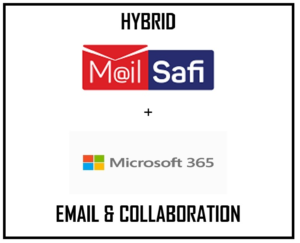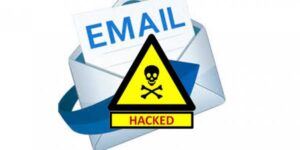In the realm of email security, there are numerous threats that can compromise the confidentiality, integrity, and availability of our messages. Phishing attacks aim to deceive users into revealing sensitive information, such as passwords or financial details. Malware attachments are disguised as harmless files attached to emails. Once opened, these attachments can infect the recipient’s computer or network.
Email spoofing can be used by attackers to manipulate the “From” field in an email header, making it appear as if the message is coming from a trusted source. This can lead to recipients unknowingly sharing sensitive information or clicking on malicious links. Email interception is another significant threat, where attackers intercept and eavesdrop on email communications, potentially gaining access to confidential information.
The risks of insecure emails
The risks associated with insecure emails are far-reaching and can have severe consequences. First, compromised emails can lead to identity theft, where attackers can gain unauthorized access to personal or financial information. This can result in financial loss, damaged reputation, and even legal implications.
Second, unauthorized emails can result in data breaches. Sensitive information such as customer data, trade secrets, or intellectual property can be exposed by such incidences. This can harm the affected individuals and incur significant financial and legal liabilities for the responsible organization.
Furthermore, insecure emails can serve as a gateway for further cyber-attacks. Once attackers gain access to an email account, they can use it as a launching pad for spreading malware, initiating phishing campaigns, and cyber-attacks against other individuals or organizations. This can result in a ripple effect of security breaches and compromised systems.
Email security statistics
To fully grasp the magnitude of the email security challenge, let’s take a look at some eye-opening statistics. According to a recent study, more than 90% of cyber attacks start with email-based phishing attempts. Furthermore, it is estimated that businesses lose billions of dollars each year due to email-related security breaches. These statistics highlight the urgent need to prioritize and strengthen email security measures.
According to a report by Mimecast, a leading email security provider, the global email threat volume increased by 64% in 2022 compared to 2021. The most common types of email attacks were impersonation, malware, and phishing. The report also revealed that 79% of organizations experienced a business disruption, financial loss, or other negative impact due to an email-borne attack in 2022. The report highlighted the need for organizations to adopt a comprehensive and layered approach to email security, including awareness training, advanced threat protection, and data backup.
Best practices for securing your email
Securing your email may seem like a daunting task, but by prioritizing a few best practices, you can significantly enhance your email security.
- Always use strong, unique passwords for your email accounts.
Avoid using easily guessable information such as your name, birthdate, or common dictionary words.
2. Enable multi-factor authentication whenever possible to add an extra layer of security.
This requires users to provide an additional authentication factor, such as a fingerprint or a one-time verification code, in addition to their password.
- Be cautious of suspicious emails and attachments.
Verify the sender’s identity before clicking on links or opening attachments. Look for any red flags, such as spelling mistakes or unusual email addresses. It is also advisable to keep your email client and antivirus software up to date to protect against known vulnerabilities and malware.
Choosing the right email security solutions
To effectively protect your emails, choosing the right email security solutions is essential. Various options are available, each with its own features and capabilities.
One popular solution is email encryption, which ensures that your messages are securely transmitted and can only be read by the intended recipients. Another option is email filtering, which automatically scans incoming emails for spam, malware, and phishing attempts, blocking them before they reach your inbox.
Additionally, consider investing in advanced threat detection and prevention systems. These solutions use machine learning algorithms and artificial intelligence to analyze email patterns and detect any suspicious or malicious activity. They can help identify and block sophisticated email threats, like zero-day attacks or spear-phishing attempts.
Email threat protection techniques
To further strengthen your email security, there are several techniques you can implement. Firstly, implement email authentication protocols such as SPF (Sender Policy Framework), DKIM (DomainKeys Identified Mail), and DMARC (Domain-based Message Authentication, Reporting, and Conformance). These protocols help prevent spam and ensure that emails are only accepted by trusted senders.
Furthermore, educate yourself and your employees about email security best practices. Conduct regular training sessions to raise awareness about common email threats and teach individuals how to identify and respond to suspicious emails. Encourage a culture of skepticism and caution when it comes to email communications.
Steps to strengthen your email security
Taking a proactive approach to strengthening your email security is crucial. Start by regularly updating your email client and operating system to protect against known vulnerabilities strengthening automatic updates whenever possible to ensure you are always running the latest security patches. Additionally, regularly back up your emails to a secure location. This can help mitigate the impact of any potential security breaches or data loss incidents.
Moreover, regularly review and manage your email account settings. Disable any unnecessary features or third-party integrations that may pose a security risk. Keep your contact lists organized and up to date to prevent sending emails to incorrect or outdated addresses. Finally, regularly review your email security settings and adjust them based on your evolving needs and the latest security recommendations.
Email security services and tools
In addition to implementing best practices and security measures, several email security services and tools are available to enhance your email security further. These services offer comprehensive protection against a wide range of threats and can help safeguard your emails and sensitive information.
Some email security services provide advanced threat detection and prevention capabilities, utilizing machine learning algorithms and AI-powered analytics to identify and block sophisticated attacks. Others offer email encryption solutions, ensuring that your messages are securely transmitted and can only be accessed by authorized recipients. Additionally, email security services may include features such as email archiving, data loss prevention, and secure email gateways.
Taking proactive steps to protect your emails
In conclusion, email security is of paramount importance in today’s digital landscape. The risks associated with insecure emails are significant, and the evolving nature of security threats requires us to take proactive steps to protect our messages and sensitive information. By understanding the common email security threats, implementing best practices, choosing the right email security solutions, and regularly reviewing and strengthening our email security measures, we can significantly reduce the risks and keep our communications secure.
So, don’t wait any longer and start taking your email security seriously. Get started with our email security services today and ensure your emails’ confidentiality, integrity, and availability. Protect your valuable information and enjoy the peace of mind of knowing your communications are safe and secure.
![]()





Pingback: What is DMARC and How Does it Work » The MailSafi Blog
Pingback: An Easy 9 step Checklist to assess your email security.